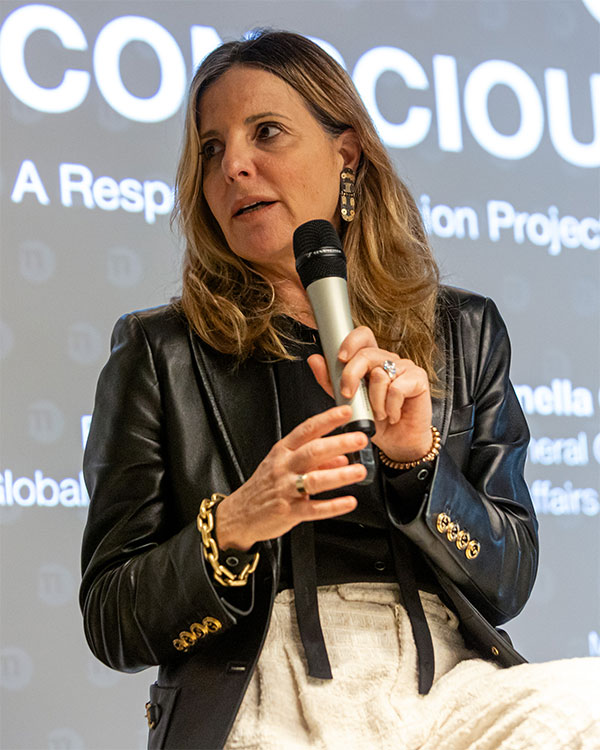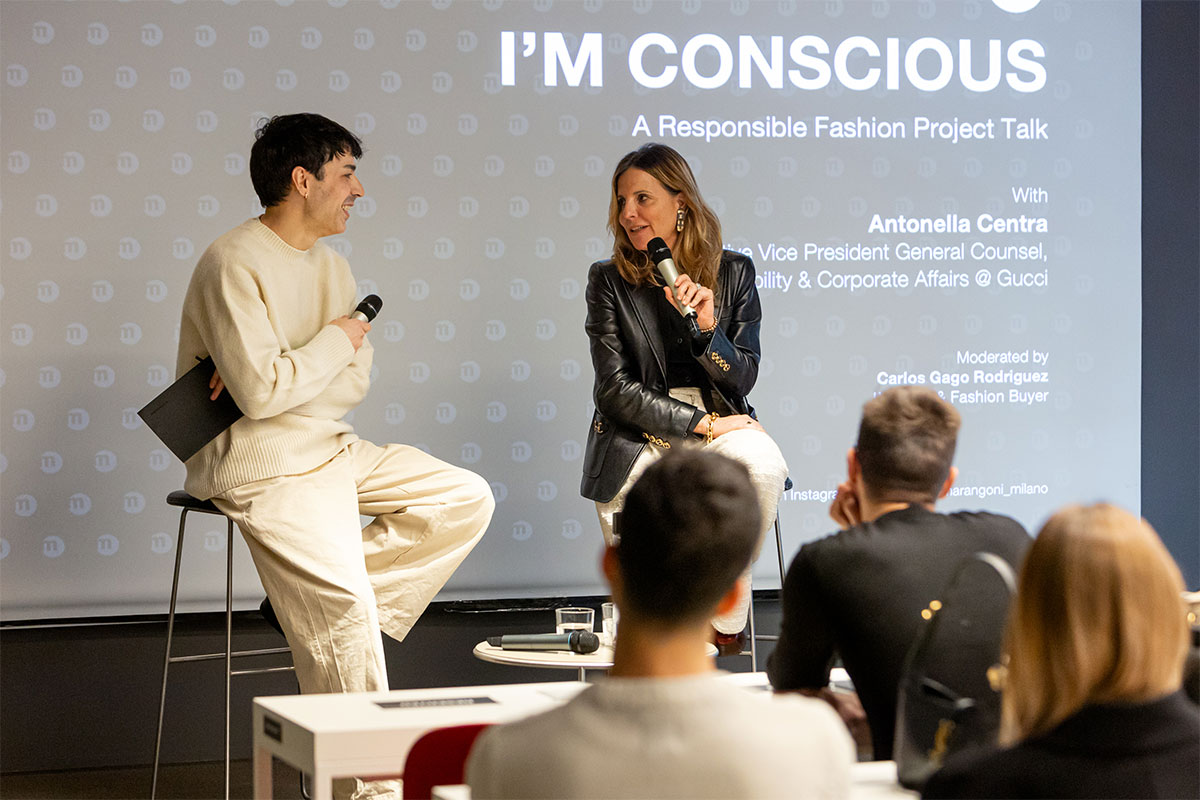


As Gucci’s sustainability expert, Antonella Centra discusses the challenges of responsibility and how to attain circularity in the fashion industry
“Sustainability knows no limits,” stated Antonella Centra, Executive Vice President and General Counsel of Corporate Affairs & Sustainability at Gucci. According to Kering’s pro player being environmentally conscious is not enough in the current atmosphere since social awareness plays another crucial role. And still, it should not stop there.
“Sustainability knows no limits” – Antonella Centra, Executive Vice President, General Counsel, Corporate Affairs & Sustainability at Gucci

Antonella Centra, Executive Vice President, General Counsel, Corporate Affairs & Sustainability of Gucci, discussing with students at Istituto Marangoni Milano
During her time in Brussels and in her current role in Milan, Antonella Centra has consistently focused on sustainability throughout her career. In Milan, she works closely with Gucci’s design team, led by Creative Director Sabato De Sarno, to ensure that each new creation is innovative, culturally sensitive, and effectively conveys its message through fashion.
In her conversation with Carlos Gago Rodriguez, a fashion buyer and professor at Istituto Marangoni Milano, Centra highlighted how her focus on sustainability has given her a profound understanding of its evolution over the past two decades.

Carlos Gago Rodriguez, a fashion buyer and professor at Istituto Marangoni Milano, engaged in a conversation with Antonella Centra, discussing the significance and progression of sustainability in the fashion industry
Initially, sustainability in fashion was primarily about waste management. However, it has evolved to address a wider array of issues, mainly including circularity—a model Gucci has championed since the 2010s.
During the talk, Antonella Centra described how Gucci has paved the way for luxury brands by introducing a comprehensive protocol that covers every aspect of their operations. This includes meticulous attention to sourcing raw materials, maintaining high standards for working conditions, and prioritising the quality of life of the workers involved.
But before all that, Centra shared that the first step in making a company more sustainable is to analyse your own business and identify your issues.
“Even when it comes to sustainability, if you don’t know what the issue is, you can’t fix it” – Antonella Centra
It is necessary to have a clear understanding of how much sustainability is practised within the organisation and to measure factors such as accounting for emissions, gas pollution, and water usage—among others—to set realistic goals for making a positive impact. This was exemplified when Gucci introduced its Culture Of Purpose 10-year strategy in 2015, outlining specific objectives to be achieved by 2025.
Visualizza questo post su Instagram
Antonella Centra shared that Gucci Equilibrium—demonstrating the Kering-owned fashion house’s commitment to driving positive change for people and the planet—is continually exploring new ways to secure a better future and ensure prosperity for the upcoming generations. For instance, when the brand partnered with reselling platforms like The RealReal and Vestiaire Collective, it seized a significant opportunity. This initiative not only increased revenue but also highlighted the distinction between luxury and fast fashion.
Moreover, Gucci was one of the first high-end brands to champion gender equality by launching Gucci CHIME, a global campaign aimed at convening, uniting, and amplifying voices advocating for equal rights.
The Florentine fashion house has also led the way in exploring the reuse of every item used for visual merchandising and runway decorations, whether designed by the former creative director Alessandro Michele or by his successor and current creative director, Sabato De Sarno.
Visualizza questo post su Instagram
All these initiatives were developed to achieve the label’s ambitious upcoming targets, which include reducing Gucci’s total footprint by 40% and greenhouse gas emissions by 50% by 2025. They also aim to optimise processes to streamline production while increasing sales.
“Sustainability communication presents challenges, yet sustainability itself should be mandatory, not merely a responsibility” – Antonella Centra
Centra concluded her talk by emphasising the importance of each individual making a small contribution in their respective fields. She encouraged thinking boldly and without limitations when envisioning our collective future.
Ximena Fernández Ochoa
Fashion Business, Digital Communication & Media, 2nd year, Milano



